Why Email Marketing is Important for Small Business
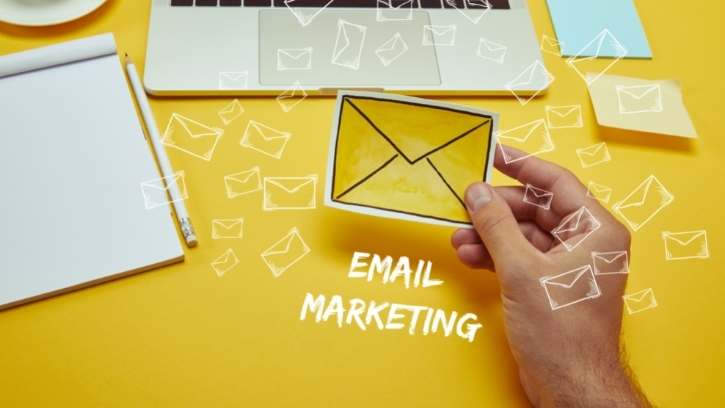
How to Get Started with Email Marketing for Small Business AND Why It’s Easier + More Important Than Ever
One of the most valuable marketing assets every profitable small business owner possesses is an email list of its target audience. This is one of your best resources for nurturing the all-important relationships with potential and current customers and existing clients.
Before you spend excessive amounts of time on trendy digital marketing tactics, focus on growing your email subscriber list as a priority. Whether you’re launching a new business or looking to grow your current one, email marketing will help you achieve your goals.
So what is email marketing exactly?
And how does email marketing help businesses? Let’s go over these questions and more, including how you can get started with successful email marketing for your small business.
What is email marketing and why is it important?
Email marketing is a type of direct marketing that uses electronic mail as a means of communicating your marketing message to an audience. In its broadest sense, every email sent to a potential or current customer could be considered email marketing, including receipts or invoices.
However, the term is usually used to refer to:
- Sending emails with the purpose of enhancing the relationship with your current or previous customers and encouraging customer loyalty, repeat business, and referrals.
- Sending emails with the purpose of acquiring new customers or convincing current ones to purchase something immediately.
Email marketing is important because it allows small businesses to reach a large number of people with minimal effort and cost. It’s also less intrusive than other digital marketing channels like digital ads or social media, as you are a welcomed guest to their inbox.
This makes email the perfect digital marketing strategy to build relationships with your prospective and current customers and grow your business.
Why email marketing is effective for small business
You may be wondering, how can email marketing help my business? There are several key factors that make it such a powerful tool for small businesses.
First, email marketing allows you to create highly targeted lists based on your customers’ interests – which means that they’re more likely to respond to your messages and take action.
This means that you can send relevant content that really appeals to your audience, increasing the chances of them taking the desired action (such as making a purchase or opening an account).
Second, email marketing gives you direct access to your customer’s inbox – which means that you’re able to reach them at exactly the right time and in exactly the right way. Unlike other forms of advertising, such as social media marketing or traditional print advertising, email marketing allows you to send personalized messages to your customers – making it much more likely that they’ll read your message and take action.
Finally, email marketing is a very affordable way to promote your business – especially when compared with more traditional forms of advertising such as TV ads or radio commercials.
Not only is email marketing much more cost-effective than these other marketing channels, but it’s also highly targeted and flexible too.
This means that you can design your campaign based on what works for your business, rather than trying to fit your message into a rigid ad format.
But there are even more advantages for you and your customers.
What are 5 advantages to using email marketing?
As mentioned, email marketing is one of the most cost-effective ways to reach your target market. Not only are you able to affordably reach a wide audience, but you can also target specific groups with email and track the results to see which campaigns are working; but these are just a few of the benefits of email marketing strategy.
Let’s dive into these a bit more.
Here are 5 benefits of email marketing for small businesses:
1. Email marketing allows you to send the right message to the right person.
Unlike other forms of direct marketing, such as print advertising or even social media posts, emails can be targeted very precisely based on factors such as demographics, geographic location, and customer interests.
This means that you can focus your efforts on reaching the customers who are most likely to be interested in your product or service and thus more likely to make a purchase. This is a better use of your marketing dollars than other traditional forms of advertising and promotion.
2. Email marketing allows you to track the results of your campaigns.
With email marketing, you can measure things such as open rates, clickthrough rates, conversion rates, and a number of other important metrics that help you understand how well your campaign is performing. This information allows you to make necessary changes to improve performance or target specific customers for even better results.
You can do more of what works because you actually can see what is working and what’s not.
3. Email marketing makes it easy for customers to share your content with others.
If a customer likes the products or services that your company offers, they may be inclined to pass along your email messages or promotions to their friends and family members who might also be interested in what you have to offer. This type of word-of-mouth advertising can be very powerful and is a great way to increase your customer base.
4. Email marketing allows you to stay top of mind with your customers.
Even if someone isn’t quite ready to make a purchase, an email reminding them about your company and the products or services that you offer can help keep you at the front of their minds when they are ready to buy something.
It also gives them the opportunity to learn more about what your business has to offer, which helps build trust and may ultimately lead to more sales when they are finally ready to make a purchase.
A simple email with helpful tips and valuable content can easily build stronger customer relationships, increase sales, and turn prospects into loyal customers.
5. Email marketing is versatile and allows you to reach customers through many different channels.
Whether you prefer emailing newsletters, special offers, or product information directly to customers, sending out press releases and announcements to the media, or using email as a way to cultivate relationships with customers and build loyalty with engaging content, there are many different ways that email marketing can be used to support your business goals.
So not only is email cost-effective, but it’s also versatile, measurable, and flexible.
But there is one feature that really makes it stand out from other marketing strategies.
What is the most important aspect of email marketing?
There are a number of important aspects to email marketing, but if I had to narrow it down to just one, it would be segmentation.
Yes, strong subject lines and compelling copy are essential for getting your message opened and read. But if you’re not segmenting your list, you’re not going to be able to maximize the effectiveness of your email campaigns.
The reason segmentation is so important is because it allows you to send more targeted, relevant messages to your email subscribers. And when your messages are more targeted and relevant, your subscribers are more likely to engage with them.
So how do you segment your list?
There are a number of ways, but for a small business, a good starting point is segmenting buyers and prospects.
This allows you to send relevant messages to each group, as they are in different places in their buyers’ journey and have a different relationship with you.
Have you ever received an email from a company asking for a referral or a review before you even purchased anything? Not only is it weird and untimely, but it’s also a wasted opportunity for a more fitting message. It’s also completely avoidable with segmentation.
Another way to segment your list is by behavior. For example, you could segment your list based on who has opened your emails in the past, who has clicked on certain links, or who has made a purchase from your store.
And the best part is email marketing services make it easy to do this.
Once you’ve segmented your list, you can start sending more targeted and relevant messages to your subscribers. These relevant messages come in the form of campaigns, and many of them can be automated, making your email strategy less hands-on once you get the ball rolling.
Let’s look at some of these email campaign types.
Types of Email Marketing Campaigns For Small Business Owners
There are several different types of email campaigns that small businesses can use to achieve their goals. And not all of them are promotional emails.
Some of these include:
Newsletter campaigns
These emails typically have one central topic or theme, such as an upcoming sale, new product offering, or a “what’s going on” feel. They are sent out on a regular basis, either daily, weekly, or monthly.
A good strategy is at least twice a month for many small businesses to stay top of mind.
Automated email campaigns
These are triggered by specific events like reaching a certain number of visitors or making a purchase. For example, if someone abandons their shopping cart, you can automatically send them a reminder email. One autoresponder campaign that every business owner needs is an automated welcome sequence that warms up new subscribers and starts the relationship off right (and can prevent unsubscribes and spam complaints.)
Lead nurturing emails
These are sent to people who have shown an interest in your product or service but haven’t made a purchase yet. They help build trust and keep your brand top of mind so that when they’re ready to buy, they’ll think of you first.
But campaigns aren’t the first step in your email marketing efforts.
Let’s talk about how to get started with email marketing.
How to get started with small business email marketing
In order to get started with email marketing, you need to have a plan in place that will help you establish goals, create an email list using email marketing software, decide on the frequency and content of emails, and a way to measure your results.
1. Establish goals
When creating the email marketing strategy for your business, it’s important to set clear goals for what you want to accomplish with each campaign.
For example, do you want more customers?
Boost sales?
Better engagement from existing customers?
Once you have established these goals, it will be easier for you to develop strategies for how to achieve them through your email marketing strategy.
2. Create an email list
One of the most important steps in starting an email marketing campaign is to create a list of subscribers. This list should be made up of people who have opted in to receive emails from your business, and it’s important to make sure that you only add people to the list who have given you their permission to do so.
There are a number of ways to build an email list, such as using a sign-up form on your website or blog, using a freebie lead magnet, or adding a “subscribe” link to your emails.
You’ll want to create your email list in email marketing software, such as Constant Contact or Kartra. These email marketing tools allow you to collect email addresses, send email broadcasts, create email campaigns and automated email sequences, and more. If you want to know how to choose the right email marketing software for your business, check out my Best Email Marketing Tools resource.
3. Decide on frequency and content for emails
Once you have an email list established, you need to decide how often you will send emails and what content you will include in those emails. There is no “right” answer to this, as every business will be different depending on its audience and goals.
Some businesses may choose to send emails once a month, while others may send them daily or even multiple times per day.
You may be thinking, what business sends emails multiple times a day? One that comes to mind is a costume shop near Halloween.
Have you ever got on one of their email lists? They have a short window to make the sale, and they know they have to pull the trigger on a purchase before Halloween. So getting out as many emails as possible helps them reach their spooky sales goals in a short time frame.
It’s important to keep in mind the goal of YOUR email marketing campaigns. Each campaign should help you get closer to your business goals, such as increasing sales or boosting customer loyalty.
4. Measure results
Once you’ve sent your first few emails, it’s important to track how each one performs so you can determine what’s working well and what areas could use some improvement.
One way to do this is to include a call-to-action (CTA) link in your emails. This will allow you to track the results of your campaign beyond just who opened the email. It gives you a more tangible result.
This will also help you determine what content resonates best with your audience and which format works best for your emails.
With careful planning, an effective email marketing campaign can help grow your business, engage existing customers, and reach new audiences.
Conclusion
As you can see, email marketing can be an effective way to reach your target audience and achieve your business goals. Your email marketing strategy can work hand-in-hand with your business goals when your messages are clear, concise, relevant, and engaging.
You’ll find the benefits of email marketing are too good to pass up, no matter what size your business. So, are you ready to get started with email marketing for your small business?
Want to learn how to conduct email marketing for your business? Start here.
About Digital Marketing Expert Torie Mathis

Torie hosts SMART AF, a show for non-techy entrepreneurs looking to grow their business, with her husband Sean and is the creator of SMART AF Magazine. Learn from Torie at the Smart Arsenal and on her channel.
What do you think? Let's talk! Leave a comment.
Hi! I'm Torie!

You don’t need crazy tech skills, buckets of cash, or dedicated staff to market your business. You don’t even need a lot of time.
What you need is to be SMART.
Smart Marketing For
Get Smart AF
DELIVERED TO YOUR INBOX
from your Digital Marketing Coach Torie Mathis!
Let's get SMART!
Let's Connect!

*Posts may contain affiliate links. If you use these links to purchase, I may earn a commission at no additional cost to you.

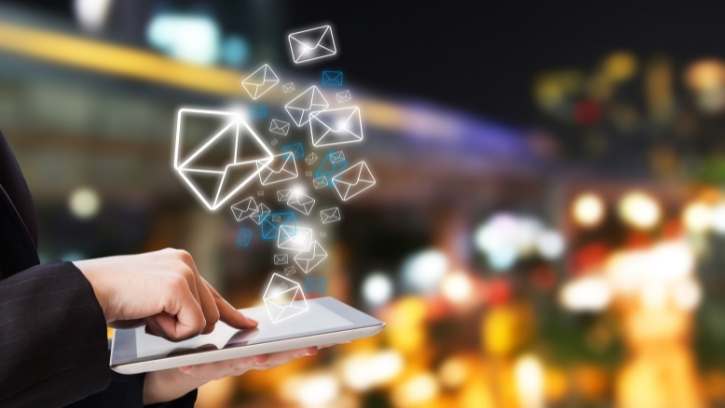


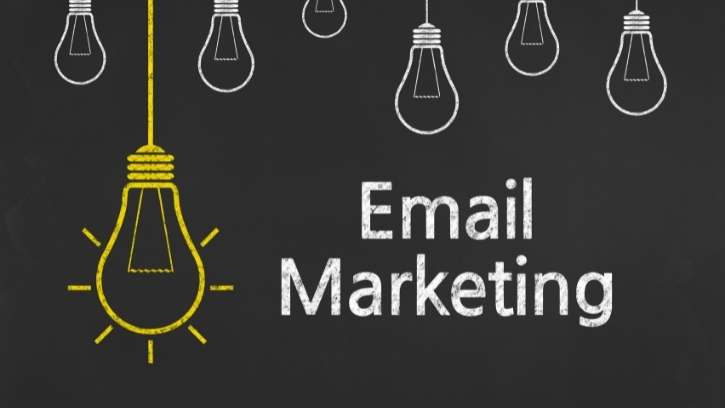


 I help entrepreneurs learn digital marketing.
I help entrepreneurs learn digital marketing.
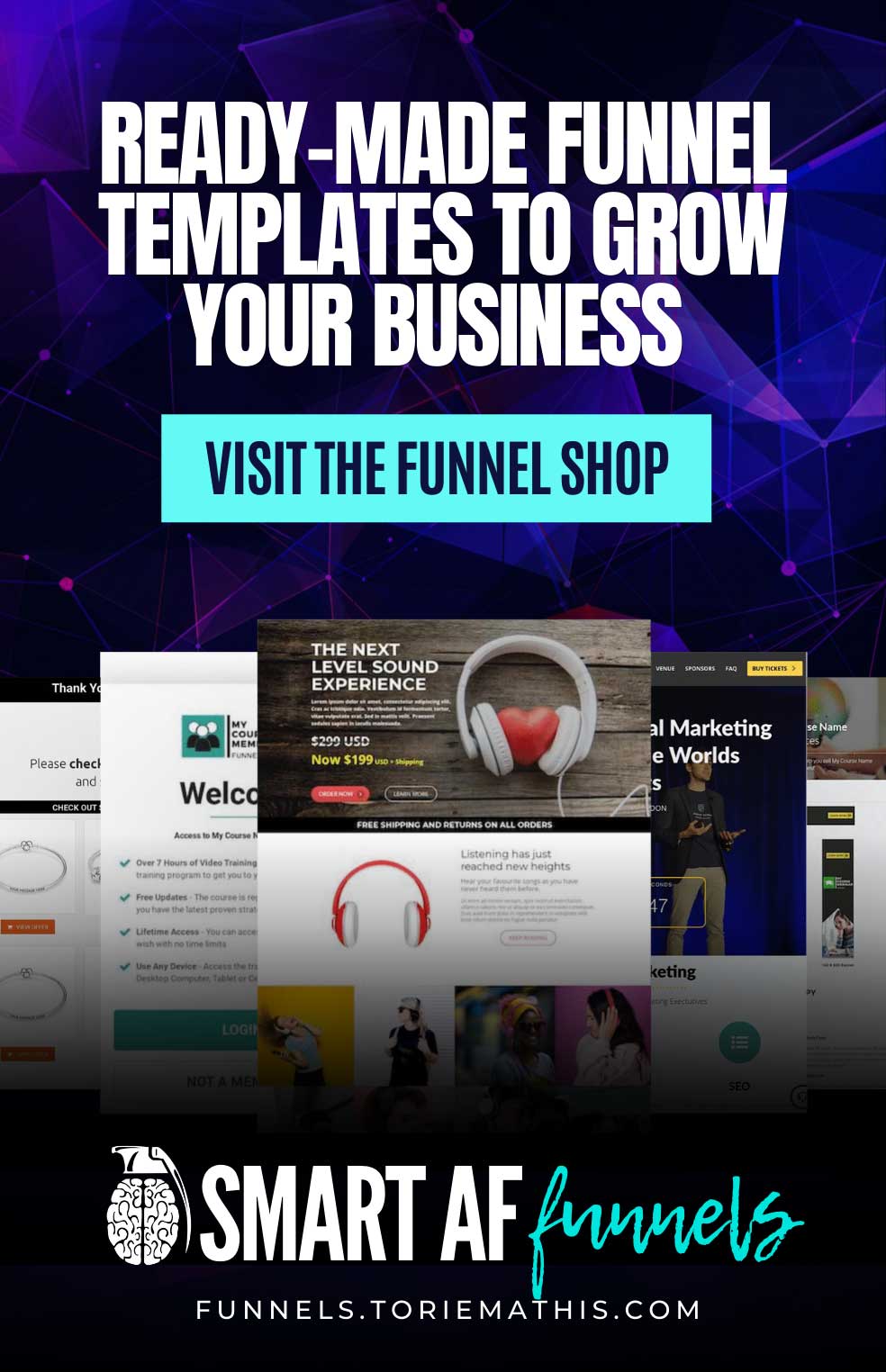
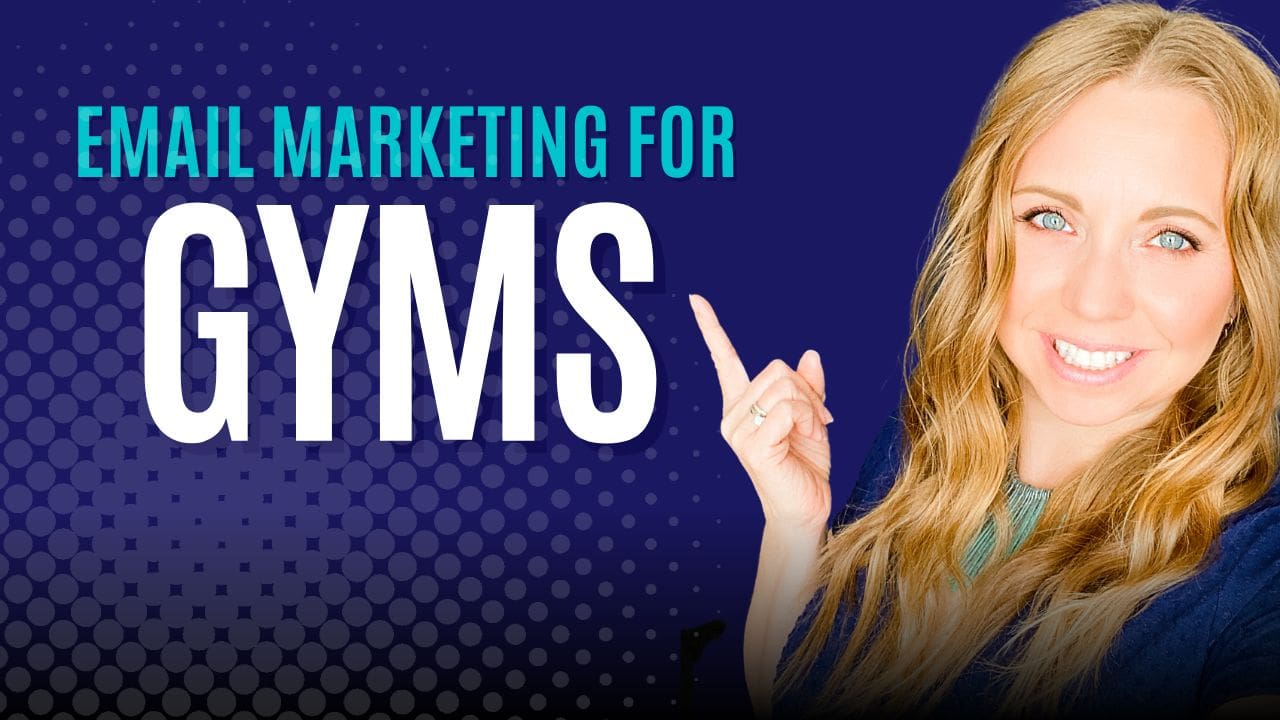
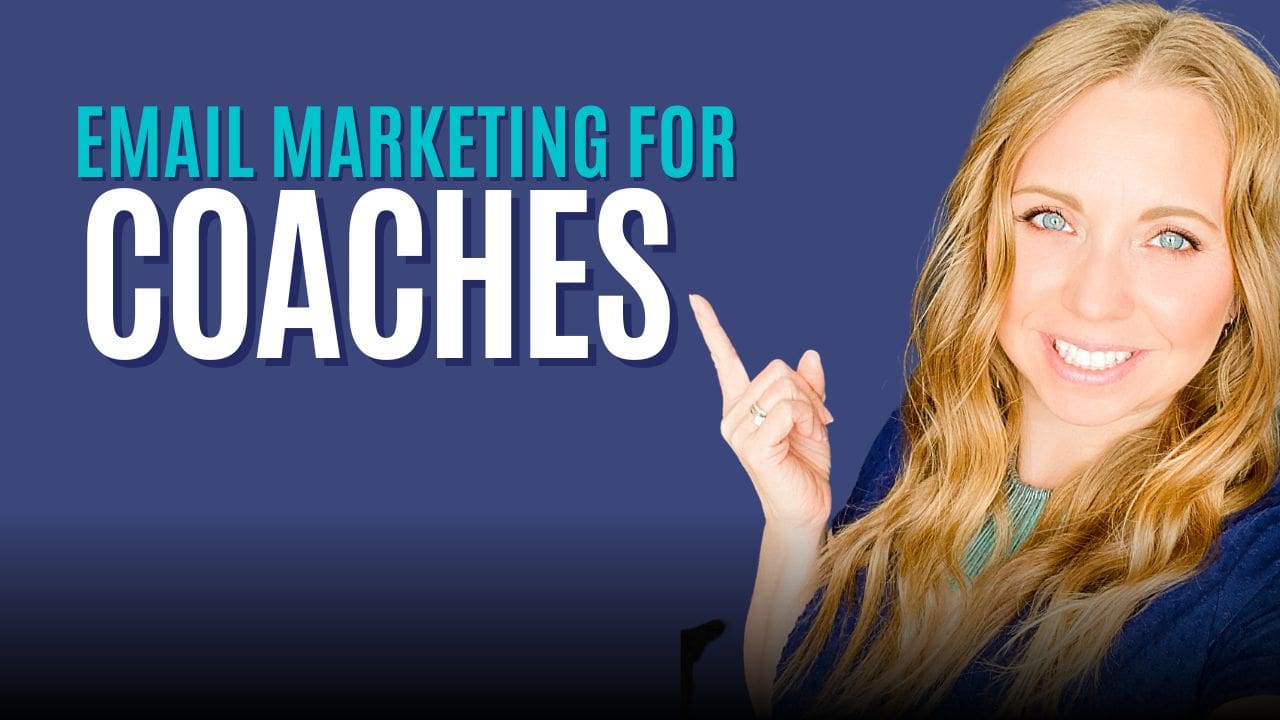
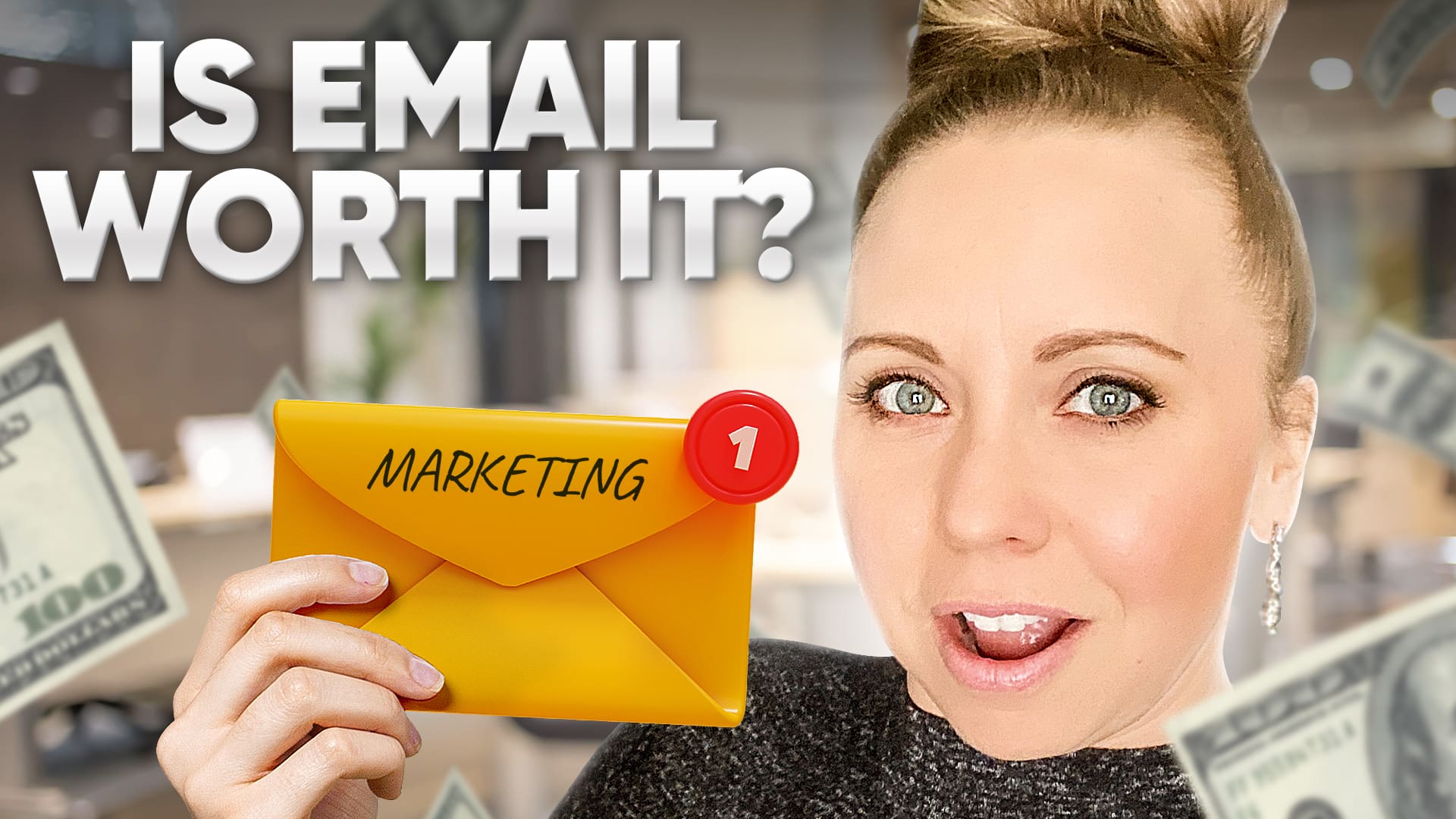
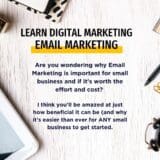
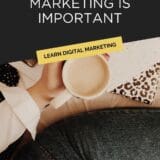
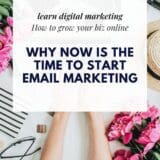
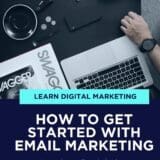
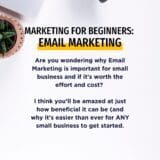
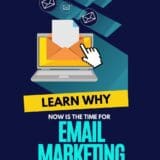
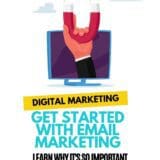
0 Comments